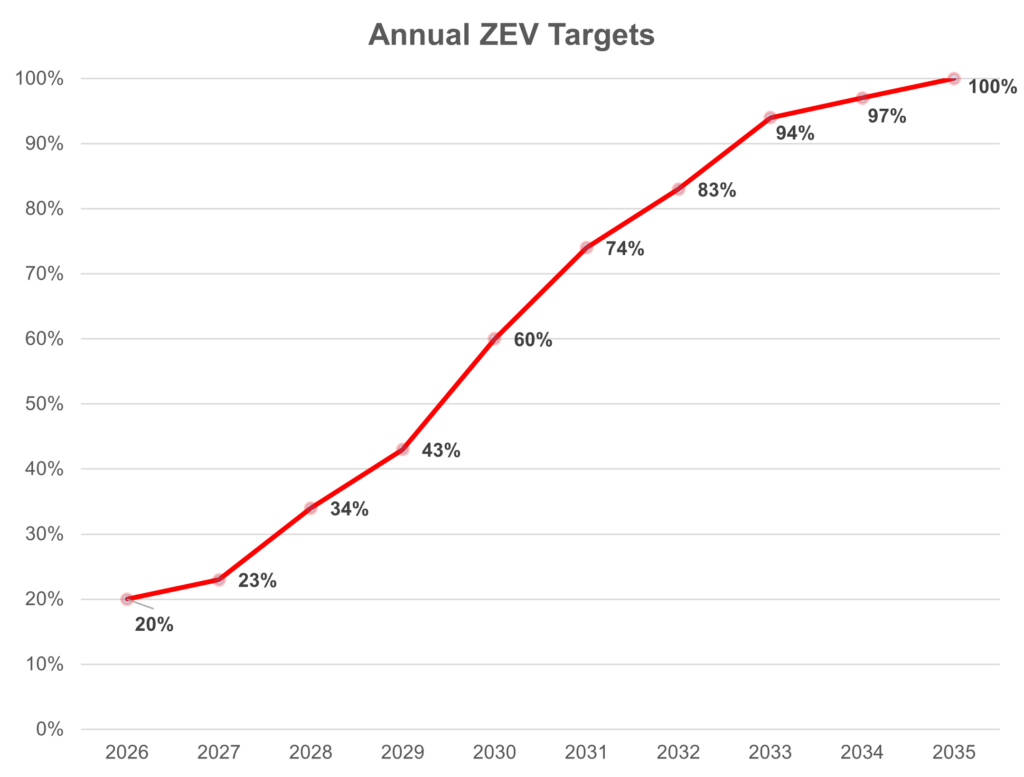Electric Vehicle Availability Standard silent on commercial trucks
The federal government today released its Electric Vehicle Availability Standard, meant to assure Canadians that electric vehicle supplies will be sufficient to ensure all passenger vehicles sold in the country will be zero-emissions models by 2035.
Interim targets are 20% of all passenger vehicle sales by 2026 and at least 60% by 2030. But there was no mention within the standard of corresponding requirements for medium- and heavy-duty commercial trucks.

Preliminary announcements, which have yet to be finalized, suggested Canada will require 35% of medium- and heavy-duty truck sales to be zero-emissions models as early as 2030. Where feasible, all such vehicles sold in certain segments will need to be zero-emission models as early as 2040.
The Pembina Institute, which recently highlighted the costs involved and steps that must be taken to electrify Canada’s medium- and heavy-duty truck fleets, issued concern about the non-inclusion of trucks in the standard announced today.
“While getting more electric cars on the road is a significant first step, an EV future includes electrifying heavy-duty trucks and buses,” Adam Thorn, transportation director at the Pembina Institute, said in a release. “In Canada, the biggest source of carbon emissions after oil and gas production is the transportation sector, which generates about a quarter of all of Canada’s greenhouse gases. Medium- and heavy-duty vehicles are responsible for 37% of those emissions.
“The reality is that carbon pollution from heavy-duty vehicles continues to rise – faster than emissions from passenger cars. Canada cannot afford to slow down now. Based on the progress that’s been made to reduce greenhouse gases from cars, it’s time to accelerate the turnover from gas- and diesel-powered vehicles to ones that are either fully electric or hydrogen-fueled.”
Have your say
This is a moderated forum. Comments will no longer be published unless they are accompanied by a first and last name and a verifiable email address. (Today's Trucking will not publish or share the email address.) Profane language and content deemed to be libelous, racist, or threatening in nature will not be published under any circumstances.